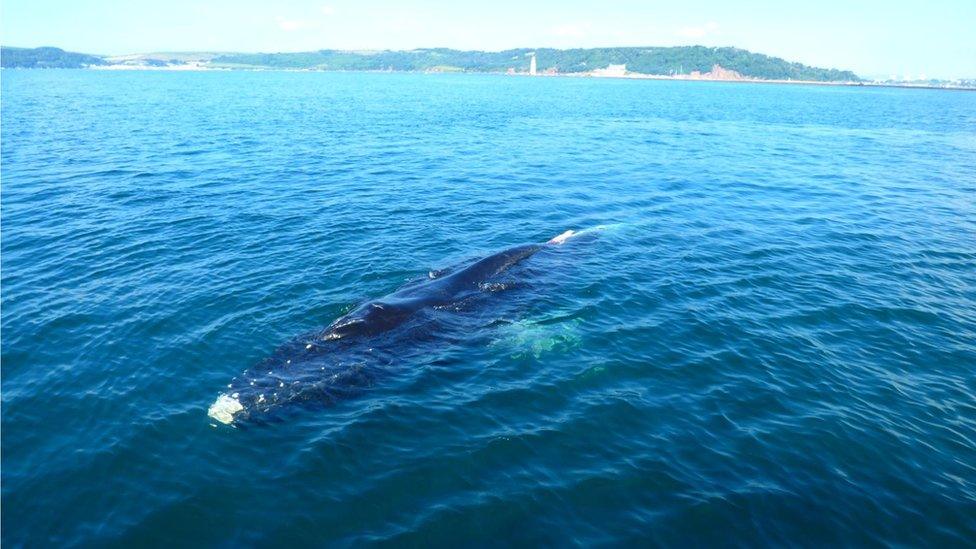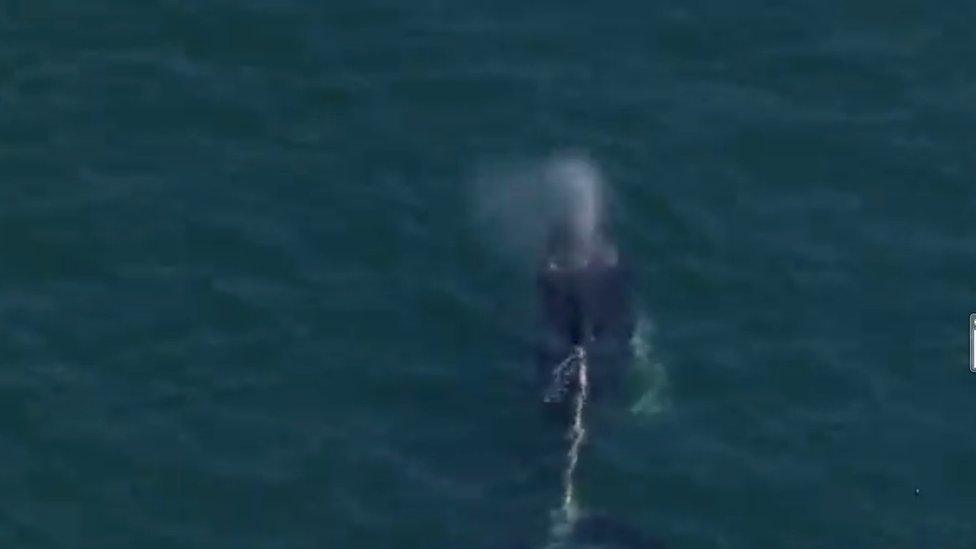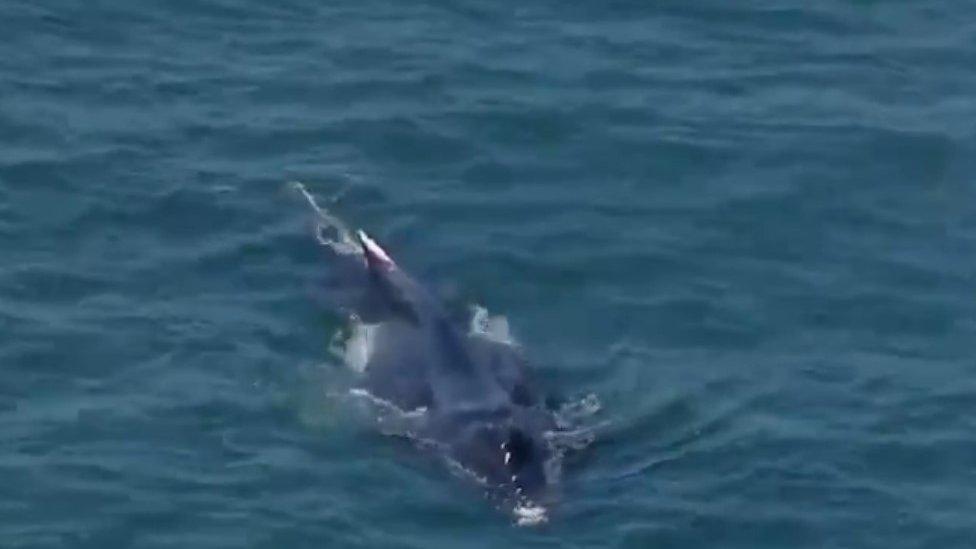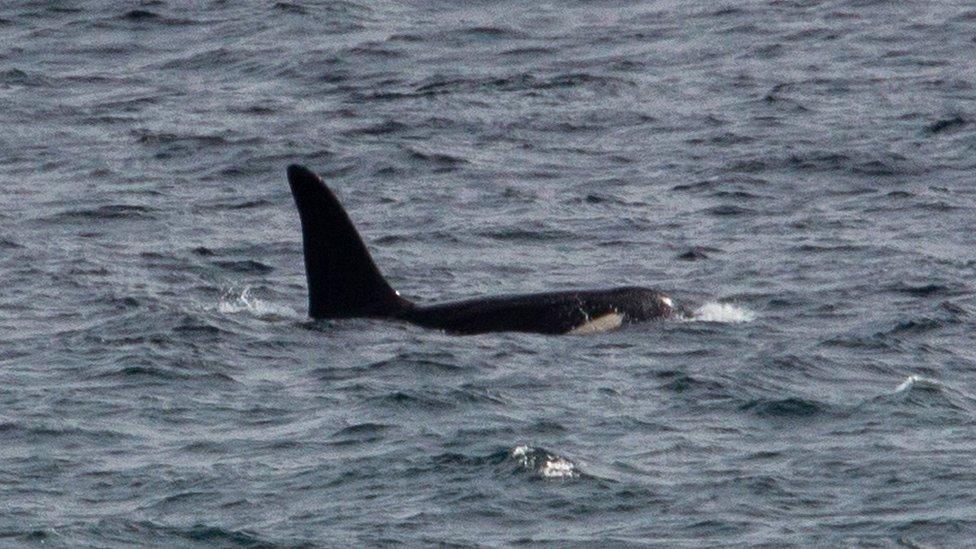Plymouth whale: Fears for 'emaciated' humpback
- Published

The whale has been spotted lying motionless on the surface at times
A humpback whale which was spotted in Plymouth Sound was in an "emaciated condition", experts have said.
British Divers Marine Life Rescue (BDMLR) said the whale's condition was "quite a worry" and it was monitoring its movements.
Photos of the whale showed some "semi-healed injuries near its tail" which could be from entanglement in ropes or nets, the group added.
The whale was first spotted in Plymouth Sound last Thursday.
Allow X content?
This article contains content provided by X. We ask for your permission before anything is loaded, as they may be using cookies and other technologies. You may want to read X’s cookie policy, external and privacy policy, external before accepting. To view this content choose ‘accept and continue’.
On Friday a race by SailGP in the harbour was delayed when the whale appeared close to the course.
Since then it has been spotted at Cawsand, Whitsand Bay and Looe in Cornwall.

The whale was first spotted in Plymouth Sound on Thursday
Dan Jarvis, of BDMLR, said: "We have been a little bit concerned about its behaviour.
"There have been periods when it's just been lying motionless on the surface and not really doing anything.
"That worries us that things are not quite right with this poor animal."
There was "very little we do can apart from monitor its progress and it may get better," he said.
"It may end up passing away or strand alive so it's important for us to keep on top of where it is."

People have been urged to steer clear if they spot the "vulnerable" animal
Mr Jarvis said pictures of the whale, which is estimated at about nine to 10 metres long, showed some "semi-healed injuries near its tail".
"We are not sure what caused this," he said.
"We don't think it was a vessel strike, it may have been an old entanglement injury but it may be part of the reason it is in such a poor condition."
He urged people to "minimise any distance" with the whale "as it's already a vulnerable animal".

Follow BBC News South West on Twitter, external, Facebook, external and Instagram, external. Send your story ideas to spotlight@bbc.co.uk, external.
Related topics
- Published6 May 2021
